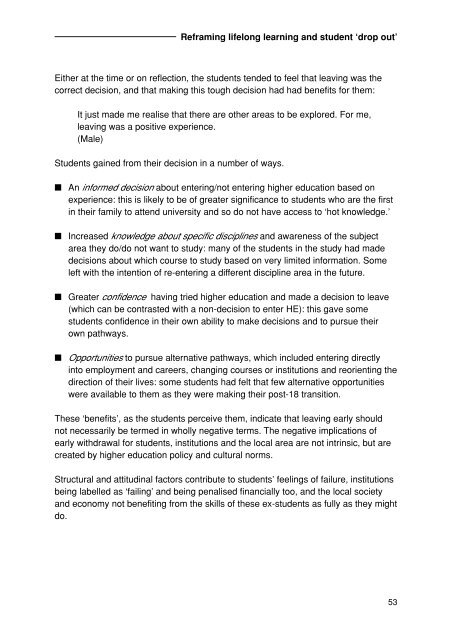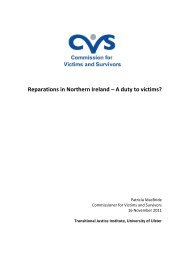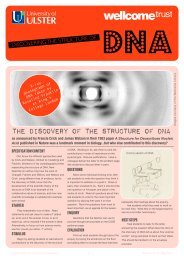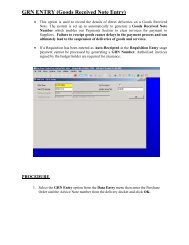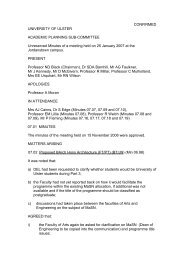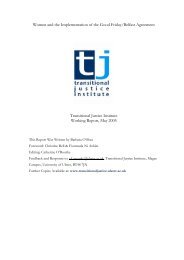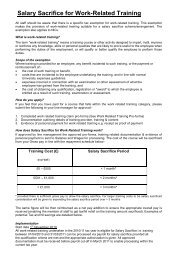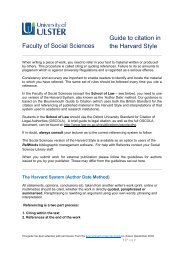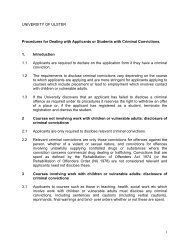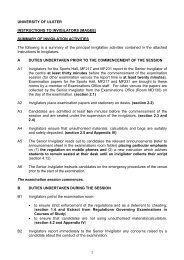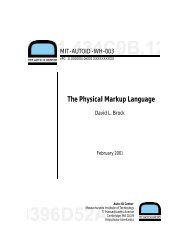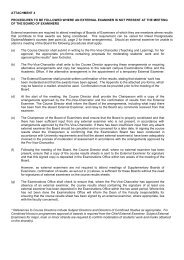From life crisis to lifelong learning: Rethinking working-class 'drop out'
From life crisis to lifelong learning: Rethinking working-class 'drop out'
From life crisis to lifelong learning: Rethinking working-class 'drop out'
You also want an ePaper? Increase the reach of your titles
YUMPU automatically turns print PDFs into web optimized ePapers that Google loves.
Reframing <strong>life</strong>long <strong>learning</strong> and student ‘drop out’<br />
Either at the time or on reflection, the students tended <strong>to</strong> feel that leaving was the<br />
correct decision, and that making this <strong>to</strong>ugh decision had had benefits for them:<br />
It just made me realise that there are other areas <strong>to</strong> be explored. For me,<br />
leaving was a positive experience.<br />
(Male)<br />
Students gained from their decision in a number of ways.<br />
■ An informed decision about entering/not entering higher education based on<br />
experience: this is likely <strong>to</strong> be of greater significance <strong>to</strong> students who are the first<br />
in their family <strong>to</strong> attend university and so do not have access <strong>to</strong> ‘hot knowledge.’<br />
■ Increased knowledge about specific disciplines and awareness of the subject<br />
area they do/do not want <strong>to</strong> study: many of the students in the study had made<br />
decisions about which course <strong>to</strong> study based on very limited information. Some<br />
left with the intention of re-entering a different discipline area in the future.<br />
■ Greater confidence having tried higher education and made a decision <strong>to</strong> leave<br />
(which can be contrasted with a non-decision <strong>to</strong> enter HE): this gave some<br />
students confidence in their own ability <strong>to</strong> make decisions and <strong>to</strong> pursue their<br />
own pathways.<br />
■ Opportunities <strong>to</strong> pursue alternative pathways, which included entering directly<br />
in<strong>to</strong> employment and careers, changing courses or institutions and reorienting the<br />
direction of their lives: some students had felt that few alternative opportunities<br />
were available <strong>to</strong> them as they were making their post-18 transition.<br />
These ‘benefits’, as the students perceive them, indicate that leaving early should<br />
not necessarily be termed in wholly negative terms. The negative implications of<br />
early withdrawal for students, institutions and the local area are not intrinsic, but are<br />
created by higher education policy and cultural norms.<br />
Structural and attitudinal fac<strong>to</strong>rs contribute <strong>to</strong> students’ feelings of failure, institutions<br />
being labelled as ‘failing’ and being penalised financially <strong>to</strong>o, and the local society<br />
and economy not benefiting from the skills of these ex-students as fully as they might<br />
do.<br />
53


